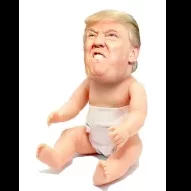To the world: Please don't become part of Thailand's internal affairs problem
-
Recently Browsing 0 members
- No registered users viewing this page.
-
Topics
-
-
Popular Contributors
-
-
Latest posts...
-
3
Report Thai-Cambodian Border Closures Threaten 60 Billion Baht Loss in Trade
60 billion.... jeez thats a lot of dodgy ciggies/ booze/drugs coming over the border ! -
10
His big beautiful bill
Yes, somebody needs to do the jobs nobody wants to do that the unlawful immigrants were doing. -
343
Crime Swedish Man Beaten by Girlfriend & Mob of 10 Men in Soi Buakhao, Pattaya
She was gagging for it... the swede shoulda put her to sleep. -
21
Report Sister of 'Joe Ferrari’ Urges Probe into Mysterious Prison Death
I don't believe he is dead. The whole thing is a charade. Lies upon lies. -
25
Offshore bank account
I think you are misunderstanding how this works (fortunately :)) - Thailand has nothing to do with my income earned (and taxed) before living in Thailand. I moved to Thailand in April 2025. They can only claim taxes on income earned after I become a tax resident. Have a look at this article, the section "Income Earned Prior to Living/Retiring in Thailand" explains it. https://www.thethailandlife.com/expat-tax-thailand#Income_Earned_Prior_to_Living_Retiring_in_Thailand -
166
Is Sharia Law next?
I find it hilarious that the woke progressives will tear down Christianity for all its past faults, and there has been plenty, but they cuddle up to Islam as if it is a wonderful belief. IMO it is the need for narcissists, especially over-educated ones, to engage in 'social warrior' activities to make up for their feelings of superiority - like movie stars adopting children in Africa using their private jets and then lecturing the world about climate change. They see everything in black and white - good and evil - oppressor and appressed - capitalist and slave - etc etc etc/ - and to them Christianity is the Oppressor and Islam is the Oppressed. The truth is that although it is true that Christianity civilised the World and Islam would destroy all that 'progress', there is no perfect solution to anything, especially in politics and religion - they are all wrong - it is just that some are more wrong than others.
-
-
Popular in The Pub





.thumb.jpeg.d2d19a66404642fd9ff62d6262fd153e.jpeg)







Recommended Posts
Create an account or sign in to comment
You need to be a member in order to leave a comment
Create an account
Sign up for a new account in our community. It's easy!
Register a new accountSign in
Already have an account? Sign in here.
Sign In Now